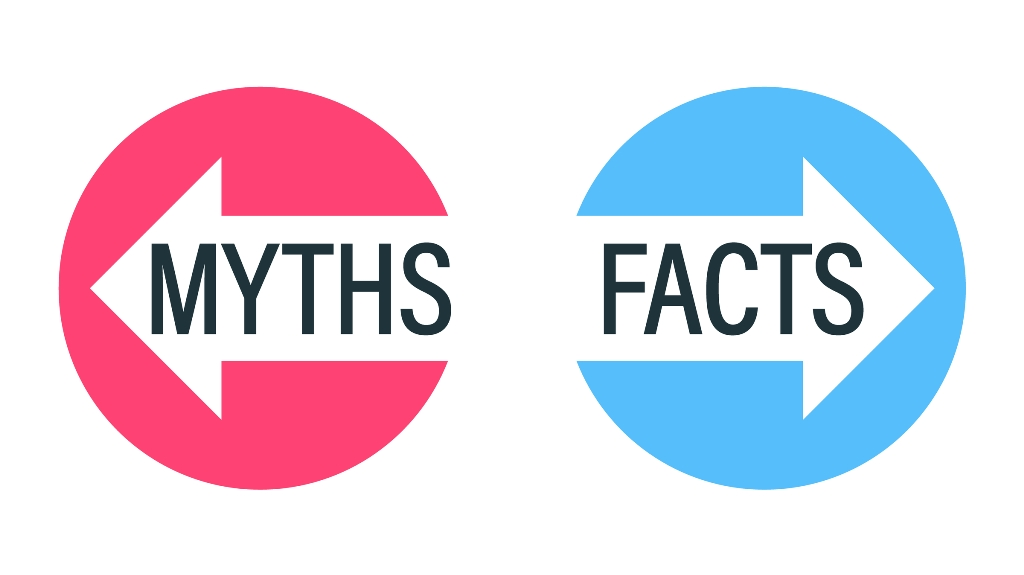Family law encompasses a wide range of legal issues that affect family relationships and structures. It serves as a means to address the complexities arising from the dynamics of relationships, especially when conflicts arise. In Australia, family law plays a vital role in shaping the lives of families and providing a framework for resolving disputes.
Defining Family Law: An Overview
Family law is a branch of law that deals with matters related to family relationships, including divorce, child custody, property settlement, and domestic violence. It seeks to protect the welfare of family members while promoting fair and just outcomes in the face of disputes.
The principles guiding family law experts sydney are designed to ensure that the best interests of children and vulnerable family members are prioritized. With a focus on resolution and reconciliation, the legal framework encourages mediation and collaboration between parties to find mutually acceptable solutions.
The Scope of Family Law in Australia
In Australia, family law covers various areas, including divorce, separation, child custody arrangements, child support, and spousal maintenance. The Family Law Act 1975 is the central legislation governing these areas. It has been instrumental in shaping the legal landscape for families, addressing issues concerning marriage dissolution, children’s rights, and property disputes.
Additionally, family law also navigates issues related to domestic relationships within de facto partnerships, where individuals living together as a couple have rights akin to those of married couples. This broad scope ensures that various family configurations are acknowledged and supported within the legal framework. The law also recognizes the complexities of blended families, where children from previous relationships may be involved, necessitating a nuanced approach to custody and support arrangements that respect all parties’ rights and responsibilities.
Key Principles of Family Law
The primary principles underpinning family law include the best interest of the child, equitable distribution of assets, and the promotion of peaceful resolution. The family law system emphasizes that decisions should prioritize the well-being and development of children involved in disputes.
Furthermore, the concept of equitable distribution ensures that all parties involved in a separation or divorce are treated fairly concerning property and financial arrangements. This balance aims to minimize conflict and promote collaboration among family members. In practice, this means that courts often take into account the contributions of both partners—financial and non-financial—when determining how assets should be divided, recognizing the importance of caregiving roles and home-making as valuable contributions to the family unit.
The Role of Family Law in Australian Society
Family law plays a crucial role in the Australian societal framework. It governs the relationships and interactions within families, providing a legal basis for addressing conflicts and protecting rights. By focusing on the welfare of children and ensuring fair treatment, family law contributes to social stability.
Moreover, family law has evolved alongside societal changes, responding to trends in family dynamics such as increasing divorce rates and the rise of blended families. As family structures evolve, the law adapts, ensuring it remains relevant in addressing contemporary issues. This adaptability is vital, as it reflects the changing values and norms of society, allowing the legal system to remain in tune with the needs of families across Australia.
Family Law and Marriage
Marriage is a significant legal contract within family law, and the legal implications of entering into or dissolving a marriage can have lifelong effects. In Australia, the legal processes surrounding divorce involve several considerations, including asset division and spousal support.
Family law not only governs divorce proceedings but also sets out the legal requirements for marriage, making it essential for couples to understand their rights and responsibilities. The law promotes healthy marriages while providing a framework for resolution if relationships dissolve. Additionally, the introduction of same-sex marriage in Australia marked a pivotal moment in family law, reflecting broader societal acceptance and recognition of diverse family structures. This shift has not only expanded the legal landscape but has also fostered a more inclusive approach to family law, ensuring that all couples have equal rights under the law.
Family Law and Child Custody
Child custody is one of the most contentious issues in family law. Australian law strives to ensure that, during divorce or separation, both parents remain involved in the child’s life unless it is deemed contrary to the child’s best interests. The “shared parental responsibility” principle encourages both parents to contribute to their child’s upbringing.
Custody arrangements can take various forms, including sole or joint custody, and the court considers several factors when determining the best arrangement for the child. Emphasizing stability and continuity, family law works to foster healthy relationships between children and their parents. Furthermore, the involvement of family dispute resolution services has become increasingly important in this context, providing mediation options that aim to resolve custody disputes amicably. These services not only help reduce the emotional strain on children but also promote cooperative parenting, which is essential for the child’s development and well-being. As society continues to grapple with the complexities of modern family life, the role of family law in facilitating these discussions remains critical, ensuring that the voices of children are heard and prioritized in custody matters.
The Impact of Family Law on Australian Families
The provisions established by family law significantly impact Australian families, particularly during challenging times such as divorce. The legal expectations and frameworks can help mitigate conflict and provide clarity for families navigating emotional and financial upheavals.
Family law encourages communication and negotiation, aiming to keep the best interests of children at the forefront. By providing structured processes and guidelines, families can achieve resolutions that reduce animosity and pave the way for cooperative parenting arrangements.

Effects on Divorce Proceedings
Divorce can be an emotionally charged process, but family law aims to streamline proceedings and reduce stress on the parties involved. The legal framework establishes guidelines for asset division, spousal support, and child custody, which can help individuals understand their rights and obligations.
The mediation process is often highlighted within family law as a method to resolve disputes amicably, which can lead to more satisfactory and sustainable outcomes for families. This approach reduces the need for lengthy court battles, allowing families to reach agreements tailored to their unique circumstances. Furthermore, mediation sessions often involve trained professionals who facilitate discussions, ensuring that both parties feel heard and respected, which can significantly lessen the emotional toll of the divorce process.
Implications for Child Support and Custody
Child support and custody arrangements are pivotal components of family law, influencing family stability post-divorce. The law dictates that both parents have a responsibility to financially support their children, even after separation. Child support payments are calculated based on a formula that takes into account the income of both parents and the needs of the child.
In terms of custody, the judiciary emphasizes the importance of maintaining relationships between children and both parents unless circumstances dictate otherwise. This focus on shared parenting helps reduce the negative impacts of divorce on children, fostering an environment for their growth and development despite familial changes. Additionally, family law recognizes the diverse structures of modern families, including blended families and those with non-traditional arrangements, ensuring that custody and support provisions are adaptable to the evolving dynamics of Australian society. This flexibility is crucial in promoting the well-being of children, as it allows for arrangements that respect the unique needs and circumstances of each family unit.
Navigating Family Law: Legal Support and Resources
Understanding family law can be daunting for many individuals, which is why legal support is essential. Family lawyers play a crucial role in guiding clients through the legal processes and ensuring that their rights are protected throughout family disputes.
Legal support services are tailored to assist families in navigating the complexities of family law, ranging from legal advice to representation in court. Being well-informed about options and implications can help family members make better decisions that suit their needs.
The Role of Family Lawyers
Family lawyers specialize in family law matters, providing critical assistance during strained familial situations. Their expertise is instrumental in helping clients understand their rights, navigate legal proceedings, and reach amicable resolutions. Family lawyers also have the skills to represent clients in court, drawing on their deep knowledge of the legal framework.
By engaging with a family lawyer, individuals can articulate their needs and concerns effectively, ensuring their cases are presented clearly. This representation can lead to more favorable outcomes in various legal proceedings, spanning divorce, child custody disputes, and property settlements.
Legal Aid and Support Services
For those who may not have the financial means to hire a private lawyer, legal aid services offer vital support. These organizations provide access to legal advice and representation for low-income individuals or those facing significant barriers. Legal aid services help ensure that all individuals, regardless of their financial situation, can access justice and support during challenging family disputes.
Additionally, community organizations and family law experts sydney services provide resources and counseling to individuals and families. These services can bridge the gap between legal processes and facilitate emotional support, making a significant difference in the overall experience of individuals navigating family law matters.
Future Trends in Australian Family Law
The field of family law is continually evolving in response to societal changes, and it is essential to remain informed about potential future trends. Shifts in societal norms, the rise of technology in legal processes, and broader discussions around family values will shape the landscape of family law in Australia.
As Australia becomes more multicultural and diverse, family law may be influenced by international practices and norms concerning family dynamics. This ongoing evolution highlights the need for flexibility within the legal framework to adapt to the changing needs of society.

Potential Reforms and Their Implications
Potential reforms in family law may focus on improving accessibility to legal services and enhancing the efficiency of court processes. Discussions surrounding the integration of technology in legal proceedings, such as online mediation and virtual court hearings, reflect the changing dynamics of how legal matters are addressed.
These reforms can have significant positive implications, such as reducing costs, minimizing delays, and making it easier for families to seek resolution. However, it is crucial to ensure that such reforms prioritize the best interests of children and maintain crucial protections for vulnerable individuals within families.
The Influence of International Family Law Trends
International family law trends can also have an impact on Australian family law practices. As the world becomes more interconnected, lessons learned from other jurisdictions can inform the development of more effective family law policies. For instance, practices in mediation and conflict resolution adopted from countries with successful family law frameworks can enhance the effectiveness of legal processes in Australia.
Moreover, international conventions and treaties regarding children’s rights and domestic violence can steer Australian legal standards toward prioritizing welfare and protection for all family members. Keeping an eye on these global shifts allows for a more comprehensive understanding of family law, enriching the legal framework and serving families better in the future.
Related : Signs You Need an Insolvency Lawyer and How They Can



































